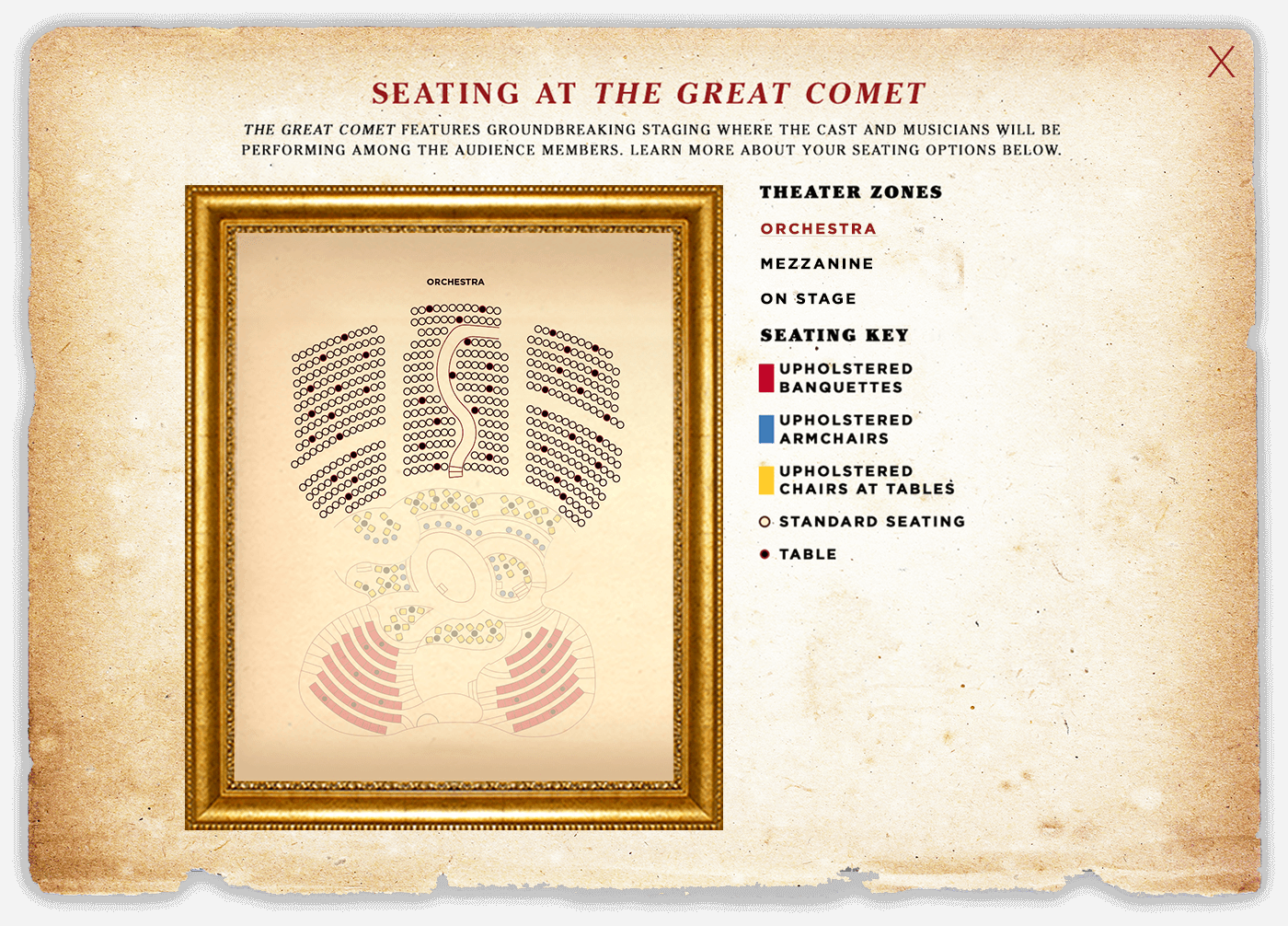
FOR IMMEDIATE RELEASE
CONTACT: Vivacity Media Group, 212-812-1483 Leslie Papa, Leslie@VivacityNY.com
Whitney Holden Gore, Whitney@VivacityNY.com
Ailsa Hoke, Ailsa@VivacityNY.com
BIG APPLE CIRCUS
ANNOUNCES NEW RINGMASTER
AND THE RETURN OF GRANDMA
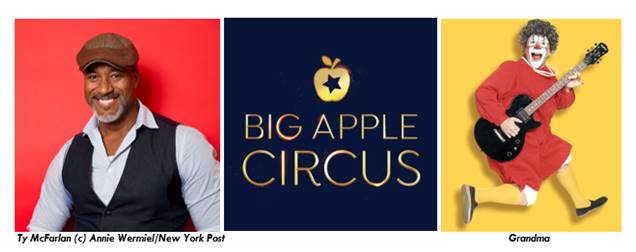
40TH ANNIVERSARY SEASON
BEGINS OCTOBER 26, 2017
AT LINCOLN CENTER
(NEW YORK – May 18, 2017) The search is over! Producers Big Top Works are thrilled to announce that Ty McFarlan will be the new ringmaster for the 40th Anniversary season of the BIG APPLE CIRCUS. It was also announced that McFarlan, who has extensive experience as a ringmaster including several years with Ringling Brothers and Barnum & Bailey Circus, will be joined by fan favorite Grandma (performed by Barry Lubin), who makes her triumphant return after a five-year absence. McFarlan and Grandma join the previously announced headliner Nik Wallenda, the legendary high wire walker and ten-time world record-holding daredevil, who will perform the seven-man pyramid with his family – a feat never before seen under the big top. BIG APPLE CIRCUS proudly returns to its long-time home at Lincoln Center’s Damrosch Park from October 26, 2017 – January 7, 2018 and will be followed by a national tour.
No stranger to the big top, McFarlan served as ringmaster with Ringling Brothers for four years. He credits his thirteen-year tenure as an officer in the Army National Guard and a strict ‘‘military brat” upbringing with preparing him for the job of the evanescent emcee of the big top. After graduating from the University of South Carolina with a degree in criminal justice, McFarlan followed his heart into a theatrical career that included theatre, TV, films, and eventually a stint with a national theater group that lead him to where he truly belongs – the circus.
“There’s nothing quite like the rich history and family atmosphere that comes with a circus,” says Ringmaster Mcfarlan. “When you think about it, few things in America have more tradition than the circus, which predates baseball, apple pie and Coca Cola! I’m so honored to be able to join one of New York’s greatest traditions and to share this experience with my new BIG APPLE CIRCUS family.”
For 25 seasons, Grandma was an iconic staple of BIG APPLE CIRCUS. A member of the Clown Hall of Fame and the Sarasota Ring of Fame (the highest honor in American Circus), Lubin could not be more ecstatic to be returning to the Big Top after performing across Europe and the US. Aside from being widely known as the face of Big Apple Circus, Lubin has enjoyed a career performing and directing with Ringling Brothers and Barnum & Bailey, numerous top circuses in the European market, and has developed shows for Nickelodeon, MTV, CBS, Sea World, Disneyland and Disneyworld.
“I’m over the moon to be re-joining one of New York’s most beloved organizations,” Lubin says. “There’s nothing like the BIG APPLE CIRCUS, and I can’t wait to bring Grandma’s old tricks – along with some fresh new material – to the shiny new BIG APPLE CIRCUS and their fantastic audience that I know and love.”
Big Top Works, an affiliate of Compass Partners LLC, became the new owners of BIG APPLE CIRCUS on February 14, 2017 following a live auction and approval from the Board of Directors. Big Top Works is comprised of Compass Partners managing partners Richard Perlman, Jim Price and Barry Salzman (who is the lead partner on the Big Apple Circus venture), as well as industry veteran Larry Solheim – who has a 30-plus year career working on and general managing circuses including BIG APPLE CIRCUS’s 2015-16 season – and Neil Kahanovitz, a renowned spine surgeon, theatrical producer, and former circus performer. The new producers share a passion for, and history with, the circus arts and are building a sustainable business plan that will revitalize the BIG APPLE CIRCUS while also honoring the legacy of its 40-year history. In addition to exceptional programing, Big Top Works is committed to maintaining BIG APPLE CIRCUS’s established community outreach programs including the Circus of the Senses, Autism performances and Circus for All – in New York City and on tour in the 2017-18 Season.
The BIG APPLE CIRCUS was founded in the summer of 1977 by circus performers Paul Binder and Michael Christensen, with a mission to present authentic and thrilling circus arts, in the intimacy of the one-ring Big Top, for audiences of all incomes.By 1979 the Circus was generating enough money to fund two Circus Arts Schools and in 1983, launched its first tour. Throughout its 40-year run, BIG APPLE CIRCUS distinguished themselves by offering many community outreach programs including providing free tickets to underprivileged children and underserved schools.
@BigAppleCircus
www.BigAppleCircus.com
BIOGRAPHIES
ABOUT TY MCFARLAN
Tyron ‘‘Ty” McFarlan credits his 13-year tenure as an officer in the Army National Guard and a strict ‘‘military brat” upbringing with preparing him to be a ringmaster with the Ringling Bros. and Barnum & Bailey Circus and the emcee of the Greatest Show on Earth. He graduated from University of South Carolina with a degree in criminal justice and then followed his heart into a theatrical career that included local theatre, TV, films and finally a stint with a national theater group, ultimately leading to his dream job as he became the 34th ringmaster in Ringling Bros.’ 138-year history.
Ty says that besides the thrill of performing live, the things he likes most about circus life are its family atmosphere and rich history. ‘‘When you think about, few things in America have more tradition than the circus which predates baseball, apple pie and Coca Cola.”
Ty has also tried his hand at acting as he can be seen as a recurring actor on Warner Bros.’ long running television series “One Tree Hill” where he plays a character named Charlie. He also has landed an episode on one of America’s favorite shows “Army Wives” on the Lifetime network where he can be seen playing the character known as Paul Broman.
Although Ty enjoys and plans to continue acting on the silver screen and performing under the big top, he also plans to pursue his passion for pattern-making and clothing design. He hopes that his fresh spin on cutting edge fashion and movable fabrics will appeal to the “on the move” athlete and modern day dare devil the world over.
ABOUT BARRY LUBIN
Barry Mark Lubin was born at Atlantic City Hospital in Atlantic City, New Jersey on July 3, 1952. His alter ego, Grandma was born on January 1, 1975 in Venice, Florida. Barry lived in Ventnor, New Jersey until attending Emerson College in Boston from 1970 to 1973, completing three years before taking a year off to try to figure out what to do with his life. Ringling Brothers and Barnum & Bailey Clown College auditions in Boston in the spring of 1974 changed his direction entirely.
Barry has enjoyed a professional relationship with Nickelodeon Networks co-creating, starring in, and executive producing two television pilots while partnering with renowned director, Yvette Kaplan. Barry developed and directed comedy segments for MTV, CBS’s Circus of the Stars, and many other projects both live and in television. Barry directed many routines for Ringling Brothers and Barnum & Bailey’s touring units, for BIG APPLE CIRCUS, Sea World of Florida, Disneyland and Disneyworld, Clown College, and many others. Barry was recently featured in the PBS mini-series, “Circus,” which chronicled a year on the road with the BIG APPLE CIRCUS (www.pbs.org/circus) Barry has directed numerous shows for BIG APPLE CIRCUS outside the Big Top Touring Unit.
Barry enjoyed 5 seasons traveling with Ringling, a three year stand-up comedy stint in San Diego, Los Angeles, Boston, and New York, 25 seasons with New York’s famed one ring circus, BIG APPLE CIRCUS where he became the “Face of the Big Apple Circus,” and numerous other appearances around the world. Barry has continued to bring Grandma to audiences in theaters, on television, in Festivals, and in other circuses in America, Europe, Asia, and Oceania. He starred in “Stars en Der Manege” which was broadcast in 8 European markets, Circo Massimo in Italy two times, and numerous other international television appearances. In the US he has appeared on “Prime Time Live,” on the national broadcasts of the morning programs on NBC, CBS, and ABC, on PBS’s “Evening at Pops,” on “Late Night with David Letterman” 4 times, was featured on PBS’s mini-series, “Circus” produced by Show of Force, and many others.
Barry was inducted into the International Clown Hall of Fame in 2002, and the Sarasota Ring of Fame in 2012, the highest honor in American Circus. He received the Lou Jacobs Lifetime Achievement Award in 2007. He has appeared in the International Circus Festival of Monte Carlo twice, the only American clown to have received this honor. He has also appeared in the International Circus Festivals in Hungary, in Izhevsk and Moscow, Russia. He is one of only two American clowns to appear in the 80 year history of prestigious Wintercirckus of Circus Krone in Munich where he was named, “The World’s Funniest Grandma.” He was named only the 5th Legend of the Parade Award in the 75 year history of Macy’s Thanksgiving Day Parade, where he was a featured character in 15 appearances both live and on NBC.
Barry is presently writing his memoirs about his remarkable life both in and outside the magical world of the circus.
ABOUT COMPASS PARTNERS LLC AND BIG TOP WORKS, LLC
Compass Partners LLC (“Compass Partners”), is a Sarasota-based merchant banking and advisory firm that specializes in middle market companies and corporate restructuring. Founded by Richard Perlman in 1995, Compass Partners has had a successful track record revitalizing and growing a number of businesses across a wide range of sectors, from food equipment to healthcare services. In addition to Perlman, Compass Partners includes Jim Price and Barry Salzman, who is the lead partner on the BIG APPLE CIRCUS Big Apple Circus venture. Big Top Works, LLC (“Big Top”), is the latest affiliate of Compass Partners and is the official owner of the BIG APPLE CIRCUS. In addition to Compass, Big Top is comprised of a team of investors who share a common passion for the circus arts including Neil Kahanovitz, an orthopedic surgeon, theatrical producer and former circus performer, and Larry Solheim, a 30-year circus veteran.
ABOUT NEIL KAHANOVITZ
As a child, when asked what he wanted to be when he grew up, the answer never changed, “an orthopedic surgeon and a circus performer.” He achieved both dreams. While attending medical school, Kahanovitz took a leave of absence to perform in the comedy trampoline act and later as an aerialist in circuses across the country. Once he graduated, Kahanovitz went on to a distinguished career in the medical field. He has been published in over 50 articles in scientific journals, written about spinal disorders in eleven medical textbooks and published a book on the care and treatment of low back pain. He has served as President of the North American Spine Society and has received the prestigious Volvo Award for Low Back Pain Research, as well as a Commendation from The United States House Physician’s Office for his care and surgery performed on members of the United States Supreme Court and Congress. He was also awarded one of the Soviet Union’s most prestigious civilian honors, The Order of The Supreme Soviet Medal of Personal Courage, for organizing relief efforts following a devastating earthquake in Armenia. Despite the success of his medical career, his show business interests resurfaced in the late 1990’s. He has since produced plays and musicals on Broadway, in London’s West End, Chicago, Los Angeles and Off-Broadway. He is thrilled to bring the BIG APPLE CIRCUS to its rightful place among the most cherished New York City cultural icons. And for a chance to run away with the circus. Not once, but twice!
ABOUT LARRY SOLHEIM
A proud veteran, Solheim has worked in the travelling entertainment field – as a performing artist, composer/arranger, conductor, educator and, most notably, a production manager – for over 35 years. Most recently, he was the Vice President and General Manager for BIG APPLE CIRCUS, brought in to oversee the touring unit and identify the issues responsible for its declining financial situation. As General Manager, Solheim oversaw the circus’ 17-million-dollar operational budget, managed and optimized all elements of the touring operations, including its 150+ team members, and coordinated research and communications with all corporate departments and directors. Prior to the BIG APPLE CIRCUS,Solheim worked for TZ Productions as Musical Director and General Manager for 26 years, where he coordinated and managed performances in up to 70 cities per year (45 building venues and 25 tent venues).
# # # #
__________________________________________
Ailsa Hoke
Vivacity Media Group
1650 Broadway, Suite 609, New York, NY 10019
212-812-1483




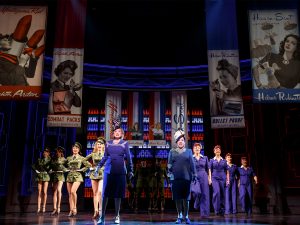 Act Two shows the competing heads of the cosmetics and beauty industry, Miss Elizabeth Arden and Madame Helena Rubinstein, having survived Governmental hearings and the Food and Drug Administration’s investigations into their product lines. All seems bleak until the outbreak of war causes an increased demand for cosmetics and a need for technologies that are patriotically developed and supplied by both Mme. Rubinstein and Miss Arden’s companies. The Postwar boom places the two ladies in what seem to be unassailable positions in the cosmetics market. After a few years, the business changes as new competitors seek out the youth market, use new forms of advertising and sell product lines that our heroines deem tasteless and shoddy. Miss Elizabeth Arden and Mme. Helena Rubinstein must then face being figures of the past with shrinking empires who cannot adapt because their pride and high standards will not let them come to terms with a rapidly changing trade and radically different concepts of beauty. The ladies must also live with the effects that their drive and determination have left on their personal lives.
Act Two shows the competing heads of the cosmetics and beauty industry, Miss Elizabeth Arden and Madame Helena Rubinstein, having survived Governmental hearings and the Food and Drug Administration’s investigations into their product lines. All seems bleak until the outbreak of war causes an increased demand for cosmetics and a need for technologies that are patriotically developed and supplied by both Mme. Rubinstein and Miss Arden’s companies. The Postwar boom places the two ladies in what seem to be unassailable positions in the cosmetics market. After a few years, the business changes as new competitors seek out the youth market, use new forms of advertising and sell product lines that our heroines deem tasteless and shoddy. Miss Elizabeth Arden and Mme. Helena Rubinstein must then face being figures of the past with shrinking empires who cannot adapt because their pride and high standards will not let them come to terms with a rapidly changing trade and radically different concepts of beauty. The ladies must also live with the effects that their drive and determination have left on their personal lives. her husband and merchandising assistant Tommy Lewis chafes at the fact that he is his wife’s subordinate and cannot be a public part of MISS Arden’s success. To add to her worries, her competitor Madame Helena Rubinstein has returned from Europe and has repurchased the American wing of the firm she had sold off before the 1929 stock market crash. Mme. Rubinstein is zealously developing new products and treatments and her assistant Harry Fleming is eagerly providing new ideas to reestablish her cosmetics as a necessary luxury. Unfortunately he too is beginning to feel that his work is not being properly appreciated. Deep in the throes of competition new alliances are forged, relationships severed and the ladies bring the FDA down upon the entire cosmetics industry.
her husband and merchandising assistant Tommy Lewis chafes at the fact that he is his wife’s subordinate and cannot be a public part of MISS Arden’s success. To add to her worries, her competitor Madame Helena Rubinstein has returned from Europe and has repurchased the American wing of the firm she had sold off before the 1929 stock market crash. Mme. Rubinstein is zealously developing new products and treatments and her assistant Harry Fleming is eagerly providing new ideas to reestablish her cosmetics as a necessary luxury. Unfortunately he too is beginning to feel that his work is not being properly appreciated. Deep in the throes of competition new alliances are forged, relationships severed and the ladies bring the FDA down upon the entire cosmetics industry. As Miss Arden’s nemesis, Ms. Patti LuPone brilliantly creates a fierce and dominating Helena Rubinstein who has never left her past, in part because she knows that no one else will let her forget who she is: a Jew and a woman. She too must battle to keep ahead and she feels that every cosmetic advance she can create is hers and hers alone even if she hires the brightest people to help market her products. There are times when Ms. LuPone’s take on her character’s Polish/Yiddish accent (by way of Australia, London and Paris) defeats her intelligibility, but all vocal confusions are forgiven whenever Ms. LuPone lands a number. In the End of Act Two, Helena sings “Forever Beautiful”, a number about trying to stop time with art that could have easily been a tribute to a woman’s self-absorption and mania as a collector of her own portraits, but Ms. LuPone makes it a touching appreciation of a woman who is facing the end of her life without any of the consolations of love and family.
As Miss Arden’s nemesis, Ms. Patti LuPone brilliantly creates a fierce and dominating Helena Rubinstein who has never left her past, in part because she knows that no one else will let her forget who she is: a Jew and a woman. She too must battle to keep ahead and she feels that every cosmetic advance she can create is hers and hers alone even if she hires the brightest people to help market her products. There are times when Ms. LuPone’s take on her character’s Polish/Yiddish accent (by way of Australia, London and Paris) defeats her intelligibility, but all vocal confusions are forgiven whenever Ms. LuPone lands a number. In the End of Act Two, Helena sings “Forever Beautiful”, a number about trying to stop time with art that could have easily been a tribute to a woman’s self-absorption and mania as a collector of her own portraits, but Ms. LuPone makes it a touching appreciation of a woman who is facing the end of her life without any of the consolations of love and family.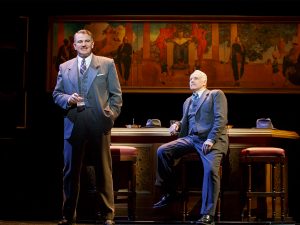 Similarly, Mr. Douglas Sills gives an admirable performance as Harry Fleming, a man who thinks he deserves more credit than Madame will give anyone. There is humor and much pathos in the fact that these two individuals can be so interchangeable in the lives of Mme. Rubinstein and Miss Arden that when they end up leaving these ladies both gentlemen merely switch bosses and much continues as before (which makes one wonder how intelligent Lewis and Fleming really are if they think the other lady would give them any more recognition – but who am I to quibble with a reality that does make for a darned good plot twist?). When watching Messrs. John Dosetti and Douglas Sills play these roles so expertly, I just kept imagining Director Michael Greif saying “You are the embodiment of all the emasculated men in the lives of these ladies.” A surprising highlight was their number “Dinosaurs” sung by the gentlemen at the end of their careers as they see their bosses and their companies being left behind by the youth culture and changes in fashion. Of course, after some of the really bad advice they both give their bosses in Act One (which brings on the FDA) I wondered why anyone would keep listening to them.
Similarly, Mr. Douglas Sills gives an admirable performance as Harry Fleming, a man who thinks he deserves more credit than Madame will give anyone. There is humor and much pathos in the fact that these two individuals can be so interchangeable in the lives of Mme. Rubinstein and Miss Arden that when they end up leaving these ladies both gentlemen merely switch bosses and much continues as before (which makes one wonder how intelligent Lewis and Fleming really are if they think the other lady would give them any more recognition – but who am I to quibble with a reality that does make for a darned good plot twist?). When watching Messrs. John Dosetti and Douglas Sills play these roles so expertly, I just kept imagining Director Michael Greif saying “You are the embodiment of all the emasculated men in the lives of these ladies.” A surprising highlight was their number “Dinosaurs” sung by the gentlemen at the end of their careers as they see their bosses and their companies being left behind by the youth culture and changes in fashion. Of course, after some of the really bad advice they both give their bosses in Act One (which brings on the FDA) I wondered why anyone would keep listening to them.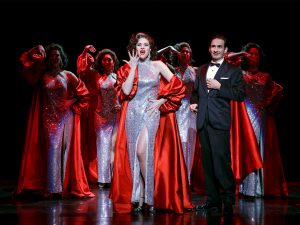 Mr. Erk Liberman’s Charles Revson is fine as a determined though unpolished male parallel to Miss Arden and Mme. Rubinstein and Ms. Steffanie Leigh is memorably eye-catching as Dorian Leigh. They also perform other people in the in the world of our two Ladies as do the rest of the superb company: Most notably Ms. Mary Ernster who summons up the best of Helen Hokinson’s Dowager cartoons from the New Yorker.
Mr. Erk Liberman’s Charles Revson is fine as a determined though unpolished male parallel to Miss Arden and Mme. Rubinstein and Ms. Steffanie Leigh is memorably eye-catching as Dorian Leigh. They also perform other people in the in the world of our two Ladies as do the rest of the superb company: Most notably Ms. Mary Ernster who summons up the best of Helen Hokinson’s Dowager cartoons from the New Yorker. Elizabeth and Helena exhibit a dignity and maturity that does not allow for much in the way of high kicks and twirls, so Choreographer Christopher Gattelli makes them the center of a world that dances around them, creating some very imaginative numbers such as “Best Face Forward” an overview of how cosmetics can affect a woman’s world and “Step on Out” where Tommy Lewis and Harry Fleming both have a night out to blow off steam in their different (yet similar) ways.
Elizabeth and Helena exhibit a dignity and maturity that does not allow for much in the way of high kicks and twirls, so Choreographer Christopher Gattelli makes them the center of a world that dances around them, creating some very imaginative numbers such as “Best Face Forward” an overview of how cosmetics can affect a woman’s world and “Step on Out” where Tommy Lewis and Harry Fleming both have a night out to blow off steam in their different (yet similar) ways. Admittedly, the sets and costumes are well worth showing off. Mr. David Corin has come up with some striking scenic designs that range from the beautiful salon backdrop of frosted geometric bottles and jars on row after row of illuminated shelves to the simple yet effective TV studio mirrors for the “Fire and Ice” number and the sedate St. Regis restaurant where people can be heard and not seen. Mr. Kevin Posner lights up each scene with great care allowing moments to successfully transition in a cinematic way and enables intimate scenes to flow easily into public displays.
Admittedly, the sets and costumes are well worth showing off. Mr. David Corin has come up with some striking scenic designs that range from the beautiful salon backdrop of frosted geometric bottles and jars on row after row of illuminated shelves to the simple yet effective TV studio mirrors for the “Fire and Ice” number and the sedate St. Regis restaurant where people can be heard and not seen. Mr. Kevin Posner lights up each scene with great care allowing moments to successfully transition in a cinematic way and enables intimate scenes to flow easily into public displays.
 NEDERLANDER THEATRE
NEDERLANDER THEATRE
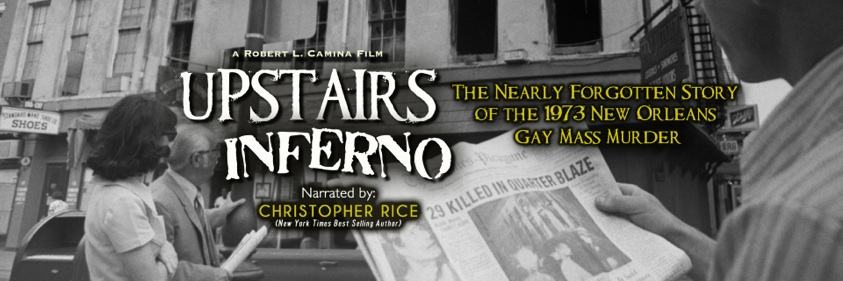
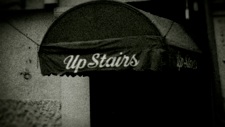 On June 24, 1973, an arsonist set fire to the Up Stairs Lounge, a gay bar located on the edge of the French Quarter in New Orleans, Louisiana. For 43 years, it was the deadliest single event to affect the gay community in U.S. history. Despite the staggering historical significance, few people know about the tragedy. Thirty-two people were killed and some bodies were never identified. One-third of the New Orleans chapter of the Metropolitan Community Church were killed in the blaze, including two clergy. The primary suspect was never charged with the crime.
On June 24, 1973, an arsonist set fire to the Up Stairs Lounge, a gay bar located on the edge of the French Quarter in New Orleans, Louisiana. For 43 years, it was the deadliest single event to affect the gay community in U.S. history. Despite the staggering historical significance, few people know about the tragedy. Thirty-two people were killed and some bodies were never identified. One-third of the New Orleans chapter of the Metropolitan Community Church were killed in the blaze, including two clergy. The primary suspect was never charged with the crime. 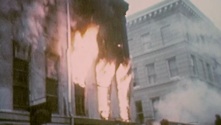 The tragedy did not stop at the loss of lives. There were also the delayed injuries: lost jobs, fear, public ridicule and severed families. The devastation was compounded by the homophobic reactions and utter lack of concern by the
The tragedy did not stop at the loss of lives. There were also the delayed injuries: lost jobs, fear, public ridicule and severed families. The devastation was compounded by the homophobic reactions and utter lack of concern by the 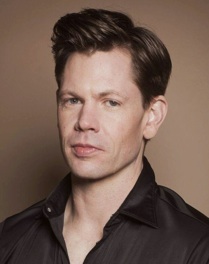 CHRISTOPHER
CHRISTOPHER 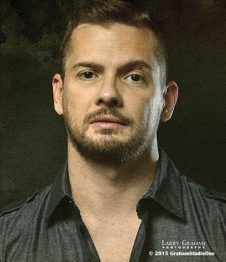 ROBERT L. CAMINA
ROBERT L. CAMINA
 is realistic. This is theater: an industry where everyone acts on what they think they have heard and seen and are all too willing to take each other at face value. So actions and reactions pile up in a believable comedy of manners that works on multiple levels – firstly as a really funny show where people have to work together even while pursuing each other in a sort of mad Mobius strip of desire. Then there is the added treat of evil recognition for anyone who has been to one too many play readings or rehearsals of a certain offbeat theatrical type.
is realistic. This is theater: an industry where everyone acts on what they think they have heard and seen and are all too willing to take each other at face value. So actions and reactions pile up in a believable comedy of manners that works on multiple levels – firstly as a really funny show where people have to work together even while pursuing each other in a sort of mad Mobius strip of desire. Then there is the added treat of evil recognition for anyone who has been to one too many play readings or rehearsals of a certain offbeat theatrical type. “The Play That Goes Wrong”
“The Play That Goes Wrong” As I mentioned above, the members of the ‘Cornley Polytechnic Drama Society’, are attempting to put on a 1920s’ murder mystery called, “The Murder at Haversham Manor”, written by Susie H. K. Brideswell, but that play isn’t really important, as a matter of fact, after two viewings, I’m still not sure ‘whodunnit’ or why! It’s the performance, or lack thereof, of the play that is the point here.
As I mentioned above, the members of the ‘Cornley Polytechnic Drama Society’, are attempting to put on a 1920s’ murder mystery called, “The Murder at Haversham Manor”, written by Susie H. K. Brideswell, but that play isn’t really important, as a matter of fact, after two viewings, I’m still not sure ‘whodunnit’ or why! It’s the performance, or lack thereof, of the play that is the point here.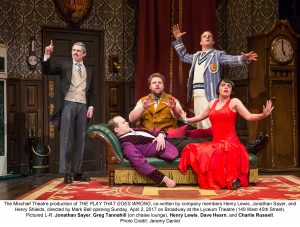 The play within a play opens with Jonathan playing Charles Haversham, (played with deafening subtlety by Greg Tannahill, the worst corpse ever) who is dead (?) being discovered in his study at his engagement party by Robert (the purposefully overacted, pompously riotous, and agile Henry Lewis) playing Thomas Colleymoore, Charles’ best friend, and Dennis (daftly played by Jonathan Sayer) playing Perkins, Charles’ manservant, who can’t remember his lines and shouts most of them.
The play within a play opens with Jonathan playing Charles Haversham, (played with deafening subtlety by Greg Tannahill, the worst corpse ever) who is dead (?) being discovered in his study at his engagement party by Robert (the purposefully overacted, pompously riotous, and agile Henry Lewis) playing Thomas Colleymoore, Charles’ best friend, and Dennis (daftly played by Jonathan Sayer) playing Perkins, Charles’ manservant, who can’t remember his lines and shouts most of them.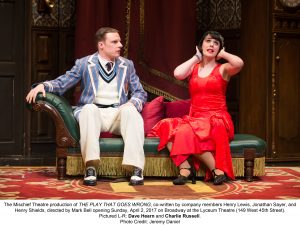 news to Sandra (delightfully hammed up and overplayed by Charlie Russell) playing Florence Colleymoore, Charles’ fiancè and Thomas’ sister who has also been having an affair with Max (who as portrayed with calculated silliness by Dave Hearn) playing Cecil Haversham ( who gets distracted by audience laughter and applause), Charles’ brother (as well as Arthur the Gardener).
news to Sandra (delightfully hammed up and overplayed by Charlie Russell) playing Florence Colleymoore, Charles’ fiancè and Thomas’ sister who has also been having an affair with Max (who as portrayed with calculated silliness by Dave Hearn) playing Cecil Haversham ( who gets distracted by audience laughter and applause), Charles’ brother (as well as Arthur the Gardener). Confused? GOOD! That’s how it’s supposed to be. But it’s not about who plays whom – it’s about the timing. TIMING IS EVERYTHING and it has never been better timed than by this group of actors. While what goes wrong, and I refuse to spoil it for you here, seems to be a sequence of random events ‘just happening’ they are, in reality, a series of perfectly staged ‘accidents’. What impressed me most is that there is nothing happening on that stage that isn’t planned down to the precise moment of execution by this amazing cast. In addition, the physical humor and the agility of the actors getting slammed by doors and trays plus the acrobatics perpetrated by all, including some of the, shall we say, heftier actors, is a thing of beauty as well. Combine that with the acting, overacting, missed cues, forgotten lines, and pratfalls and you have the audience laughing non-stop through both acts and remembering The Play That Goes Wrong long after the curtain (and more) comes down.
Confused? GOOD! That’s how it’s supposed to be. But it’s not about who plays whom – it’s about the timing. TIMING IS EVERYTHING and it has never been better timed than by this group of actors. While what goes wrong, and I refuse to spoil it for you here, seems to be a sequence of random events ‘just happening’ they are, in reality, a series of perfectly staged ‘accidents’. What impressed me most is that there is nothing happening on that stage that isn’t planned down to the precise moment of execution by this amazing cast. In addition, the physical humor and the agility of the actors getting slammed by doors and trays plus the acrobatics perpetrated by all, including some of the, shall we say, heftier actors, is a thing of beauty as well. Combine that with the acting, overacting, missed cues, forgotten lines, and pratfalls and you have the audience laughing non-stop through both acts and remembering The Play That Goes Wrong long after the curtain (and more) comes down.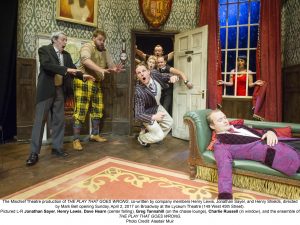
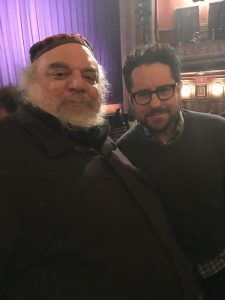
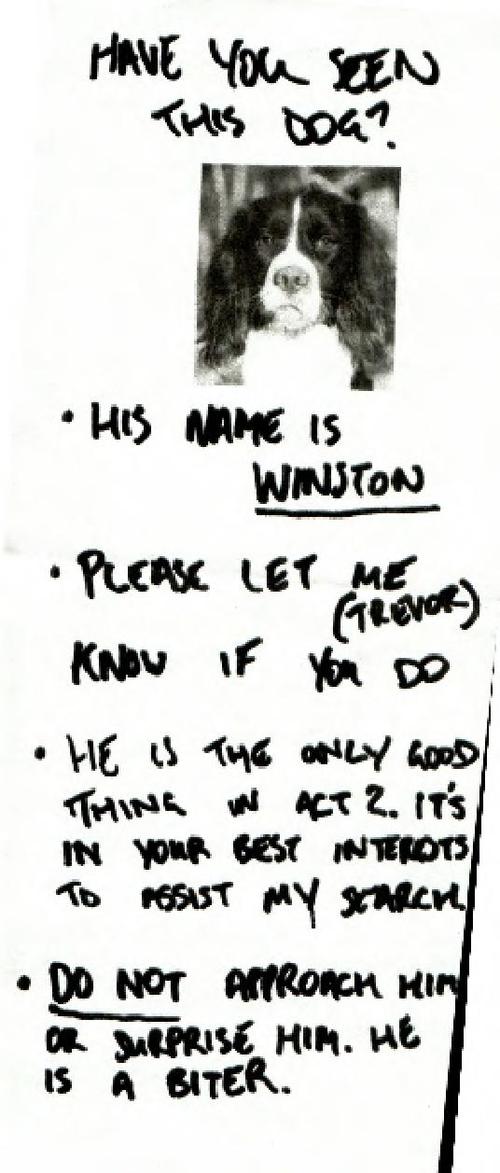
 Mr. Gordon Stanley is a perfectly peevish Prospector who is driven by oil and cannot see any romance beside it. He fits perfectly in with the Presidents who are played with relish by Messrs. Stephen Mo Hanan, Peter Land and J. Bernard Calloway. All the gentlemen gleefully twirl a metaphysical villainous mustache with panache, bringing their best to their anthem of greed “Just A Little Bit More” and being merrily hissable in “The Spring of Next year” where they exult in the destruction of Paris.
Mr. Gordon Stanley is a perfectly peevish Prospector who is driven by oil and cannot see any romance beside it. He fits perfectly in with the Presidents who are played with relish by Messrs. Stephen Mo Hanan, Peter Land and J. Bernard Calloway. All the gentlemen gleefully twirl a metaphysical villainous mustache with panache, bringing their best to their anthem of greed “Just A Little Bit More” and being merrily hissable in “The Spring of Next year” where they exult in the destruction of Paris. 
 One of the Countess’ aides and links from the harsh real world to her romantic existence is Mr. Lenny Wolpe’s jovial Sewerman. From his number “Pretty Garbage” and onwards Mr. Wolpe creates a man who has his mind in the most delightful of gutters, giving cheerful denials about the outrageous world below that make it seem even more wonderful and fantastic. When the Sewerman gives a “sympathetic” defense of the rich in Act Two, Mr. Wolpe extracts some wonderfully timely comedy out of the moment.
One of the Countess’ aides and links from the harsh real world to her romantic existence is Mr. Lenny Wolpe’s jovial Sewerman. From his number “Pretty Garbage” and onwards Mr. Wolpe creates a man who has his mind in the most delightful of gutters, giving cheerful denials about the outrageous world below that make it seem even more wonderful and fantastic. When the Sewerman gives a “sympathetic” defense of the rich in Act Two, Mr. Wolpe extracts some wonderfully timely comedy out of the moment.  makes a beautiful Mute – the observer of all and assistant to the Countess. For a man who will not speak, Mr. Kristopher Thompson-Bolden’s Mute is a real chatty soul and can even deliver a song with flair – allowing gesture and dance to supply the lyrics that are then picked up and sung by the other performers.
makes a beautiful Mute – the observer of all and assistant to the Countess. For a man who will not speak, Mr. Kristopher Thompson-Bolden’s Mute is a real chatty soul and can even deliver a song with flair – allowing gesture and dance to supply the lyrics that are then picked up and sung by the other performers. Two other Madwomen assist the Countess: Ms. Alison Fraser gives us a striking and memorable Madame Constance, Madwoman of the Market. She could have jauntily stepped out of an Edward Gorey drawing but her fancies are less gothic and more aurally and erotically absurd.
Two other Madwomen assist the Countess: Ms. Alison Fraser gives us a striking and memorable Madame Constance, Madwoman of the Market. She could have jauntily stepped out of an Edward Gorey drawing but her fancies are less gothic and more aurally and erotically absurd.
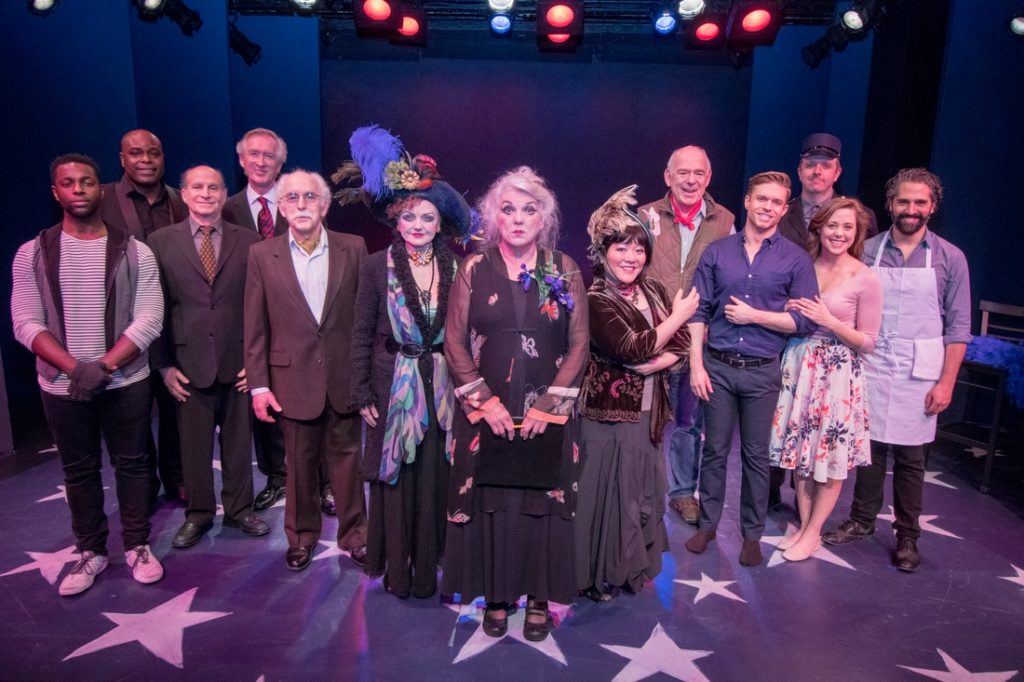
 At the Imperial Theatre
At the Imperial Theatre NATASHA, PIERRE & THE GREAT COMET OF 1812 is a remarkable show that sweeps the audience into the chaotic and hedonistic world of Moscow during the Napoleonic wars.
NATASHA, PIERRE & THE GREAT COMET OF 1812 is a remarkable show that sweeps the audience into the chaotic and hedonistic world of Moscow during the Napoleonic wars.